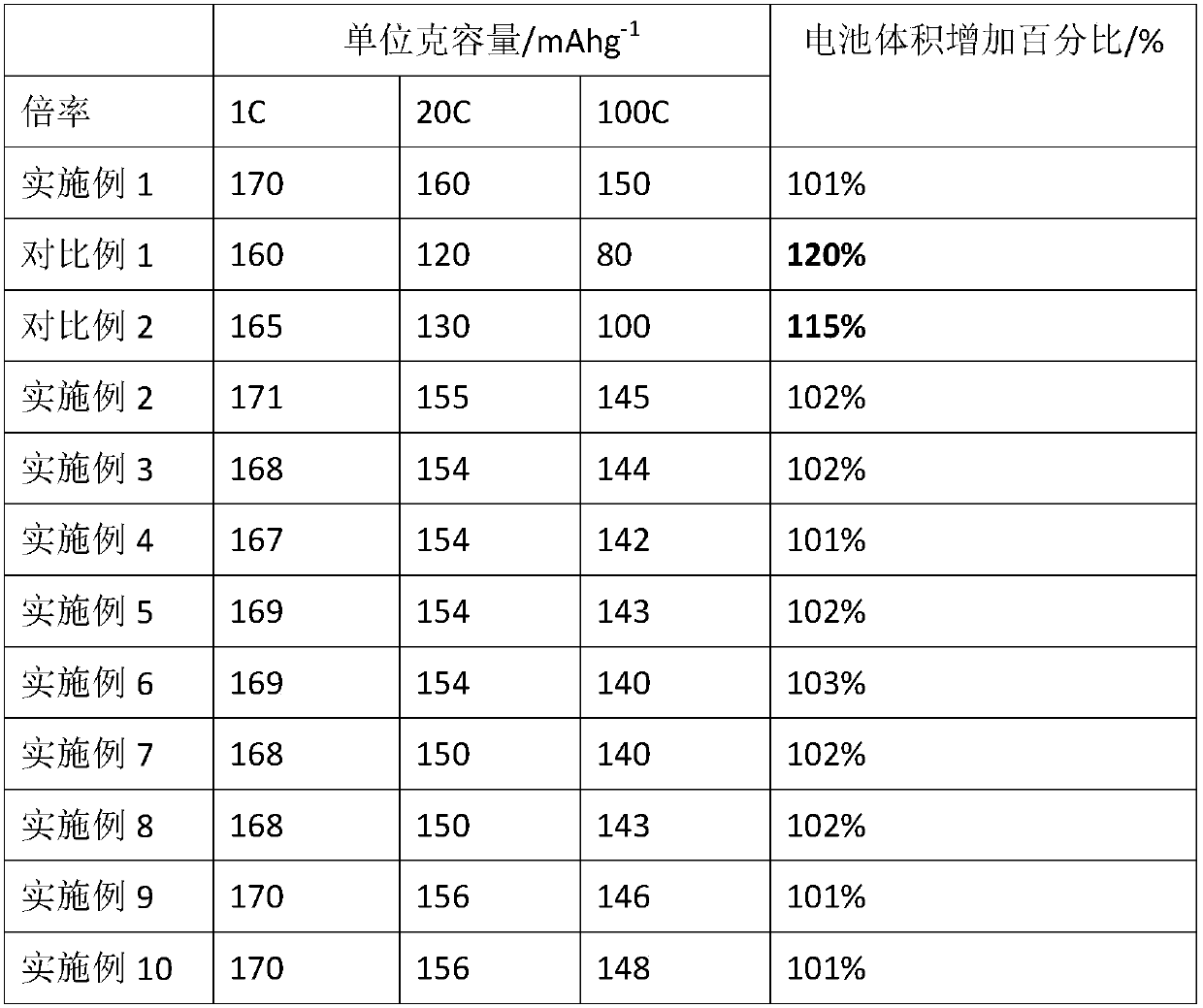Fluorinated graphene modified lithium titanate material and preparation and application
A technology of fluorinated graphene and lithium titanate, which is applied in the field of lithium-ion batteries and lithium-ion supercapacitors, can solve the problems of poor electronic conductivity of lithium titanate, restrictions on large-scale commercial application of lithium titanate, and battery flatulence, etc., to achieve Effects of improving rate performance, eliminating surface defects of lithium titanate, and reducing electron conduction resistance
- Summary
- Abstract
- Description
- Claims
- Application Information
AI Technical Summary
Problems solved by technology
Method used
Image
Examples
Embodiment 1
[0024] After mixing lithium acetate 10g, ethanol 45g, acetic acid 2g, fluorinated graphene (F / C ratio is 1.1, 5 layers) 2g, and water 0.5g until uniform, slowly add 50g tetrabutyl titanate, after stirring for 5 hours, The liquid was evaporated to dryness to obtain an intermediate phase. Then calcined at 600°C for 8 hours under argon atmosphere, and made into powder material after cooling.
[0025] The above materials were subjected to elemental analysis, wherein the mass fraction of carbon element accounted for 10%, the mass fraction of fluorine element accounted for 5%, and the rest was lithium titanate.
[0026] The above materials were tested by XPS and peaks were divided. Among them, 684.8e V belonged to Ti-F bond, 686.6e V belonged to C-F bond, and 685.7e V belonged to C-F-Ti bond. Contains C-F-Ti bonds, Ti-F bonds, and C-F bonds. These bonds are conducive to the compound lithium titanate and fluorinated graphene on the atomic scale to greatly reduce the electron conduct...
Embodiment 2
[0037] After mixing 10 g of lithium acetate, 60 g of methanol, 3 g of acetic acid, 3 g of fluorinated graphene (F / C ratio of 1.2, 4 layers), and 0.3 g of water until uniform, slowly add 100 g of tetrapropyl titanate and stir for 4.5 hours, The liquid was evaporated to dryness to obtain an intermediate phase. Then calcined at 800°C for 68 hours under nitrogen atmosphere, and made into powder material after cooling.
[0038] The above materials are used for electrode preparation and battery testing. The conditions for electrode preparation and battery testing are shown in the table.
Embodiment 3
[0040] Lithium acetate 10g, isopropanol 80g, acetic acid 2.7g, fluorinated graphene (F / C ratio is 1.1, 5 layers) 3g, after water 0.3g are mixed uniformly, slowly add 12g tetrabutyl titanate, stir 3 After 1 hour, the liquid was evaporated to dryness to obtain an intermediate phase. Then it was calcined at 500°C for 10 hours under an argon atmosphere, and it was cooled to make a powder material.
[0041] The above materials are used for electrode preparation and battery testing. The conditions for electrode preparation and battery testing are shown in the table.
PUM
 Login to View More
Login to View More Abstract
Description
Claims
Application Information
 Login to View More
Login to View More - R&D
- Intellectual Property
- Life Sciences
- Materials
- Tech Scout
- Unparalleled Data Quality
- Higher Quality Content
- 60% Fewer Hallucinations
Browse by: Latest US Patents, China's latest patents, Technical Efficacy Thesaurus, Application Domain, Technology Topic, Popular Technical Reports.
© 2025 PatSnap. All rights reserved.Legal|Privacy policy|Modern Slavery Act Transparency Statement|Sitemap|About US| Contact US: help@patsnap.com

